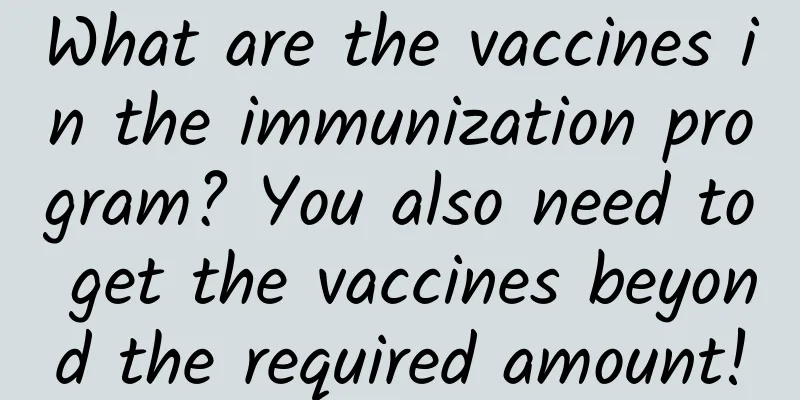What are the symptoms of zinc deficiency in women?

|
If the diet is not properly balanced, it is easy to cause zinc deficiency. So what are the symptoms of zinc deficiency in women? Women who usually have dull skin, dry and yellow hair, ringworm on their faces, poor appetite, decreased immune function, and are prone to illness, and most importantly, delayed or irregular menstruation, etc., may all be manifestations of zinc deficiency. It seems that zinc deficiency in women can cause great harm to their bodies. Let us take a closer look at the symptoms of zinc deficiency in women. 1. Hair. The hair lacks luster and becomes dry, grey and sparse. 2. Complexion. Most women who are zinc deficient will show symptoms of mild malnutrition on their faces, and their complexion will be dark yellow. 3. Weak constitution. Women who are zinc deficient have weak constitutions and are easily sick. A slight change in the weather will cause them to catch colds and fevers repeatedly, and they lack resistance to epidemic diseases. 4. Night sweats. The slightest exercise will cause sweating, and night sweats are more likely to occur when sleeping at night. 5. Lack of concentration. Zinc deficiency also manifests itself in poor concentration, such as difficulty focusing on work and lack of attention, which affects work performance. 6. Decreased vision. People who are zinc deficient will show a significant decrease in vision and may even suffer from night blindness, causing people who were not originally nearsighted to become nearsighted. 7. Poor digestive function and frequent oral ulcers. If zinc is deficient, people's digestive ability will decline, and they will easily feel full even if they eat less. It also often causes oral ulcers. Zinc deficiency needs to be supplemented in time, and relying solely on food for supplementation is not comprehensive and cannot achieve the purpose of timely supplementation. Pay more attention to your diet in daily life, and eat more whole flour, tofu and other soy products, beef, mutton, fish, lean meat, peanuts, sesame seeds, dairy products, cocoa and other foods to supplement zinc. In addition, there are some foods rich in zinc, such as seafood, mushrooms, eggs, garlic, etc. The above are the symptoms of zinc deficiency in women, so you must develop a good habit of not being picky about food and have a balanced diet. First of all, you should take the method of dietary supplements and eat more foods high in zinc. If you need to supplement zinc through medicine, you should follow the doctor's instructions to avoid trace element poisoning that harms your health. At the same time, getting enough sleep is more beneficial to your body. |
<<: What are the symptoms of kidney failure in women?
>>: What are the benefits of eating lotus root for women?
Recommend
If you want your baby to have good teeth, learning to brush teeth is essential!
《Cotton Swab Medical Science Popularization》 Rong...
What are the symptoms of cold blood stasis?
What are the symptoms of dysmenorrhea of cold s...
Is it normal to have thin and pastey vaginal discharge?
Because women's physiological phenomena are q...
How to eliminate cervical fatigue when you often look down at your phone or computer?
With the change of lifestyle, people have become ...
To treat refractory hypertension, aldosterone antagonists have different targets from traditional antihypertensive drugs
A friend complained to Huazi, saying that he had ...
How many days does ovulation last? Take you to understand professional physiological knowledge
The female physiological structure is very comple...
Why is the pot-baked pork not evenly coated? What should I do if the pot-baked pork is not evenly coated?
We all know that sweet and sour pork is a common ...
What happens when menstruation comes back after menopause? The reason is surprising
Under normal circumstances, women will no longer ...
What is the Scarlett Johansson PDF password 123? Scarlett Johansson HD PDF file Baidu Cloud
Where can I find the high-definition PDF file of ...
What to do if you don't have enough milk during a normal birth
After birth, the fetus cannot directly eat the fo...
Is a cyst in the uterus serious?
The symptoms of uterine cysts in women are not as...
Will menopause make you thin?
Menopause will not make women lose weight. There ...
Women who know how to sleep are beautiful until old
Sleep is very important for everyone, and there i...
Beware! These four symptoms may indicate femoral head necrosis. Immediate medical attention is the key
Femoral head necrosis, also known in medical term...
Children frequently blink and rub their eyes in spring? Beware of allergic conjunctivitis!
Allergic conjunctivitis As spring arrives and flo...









